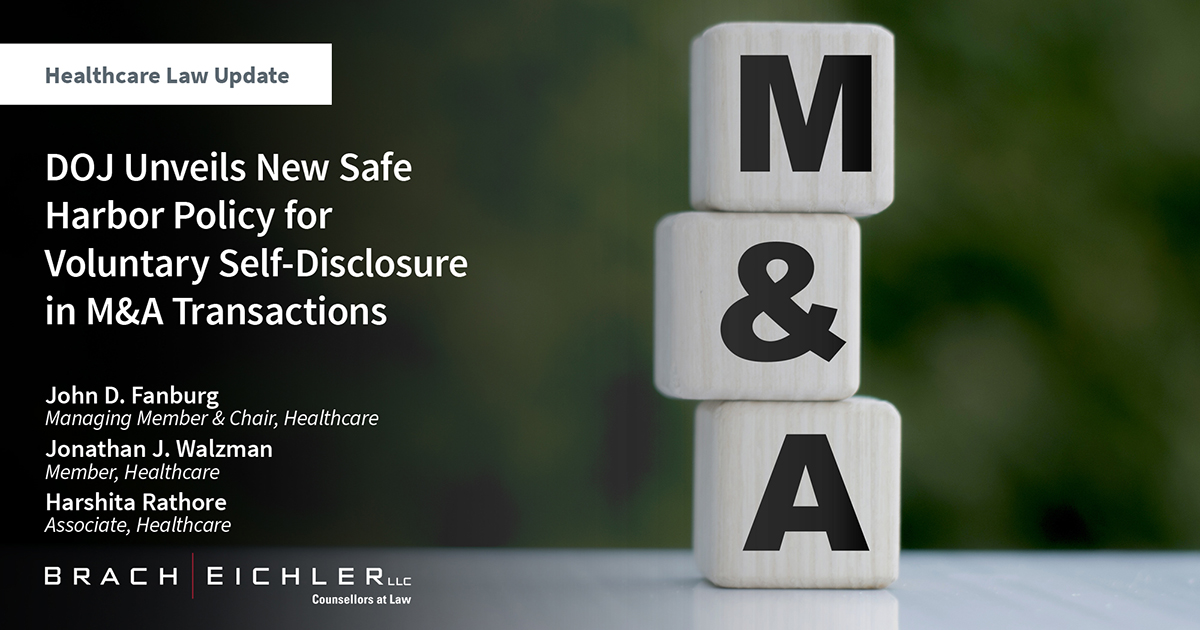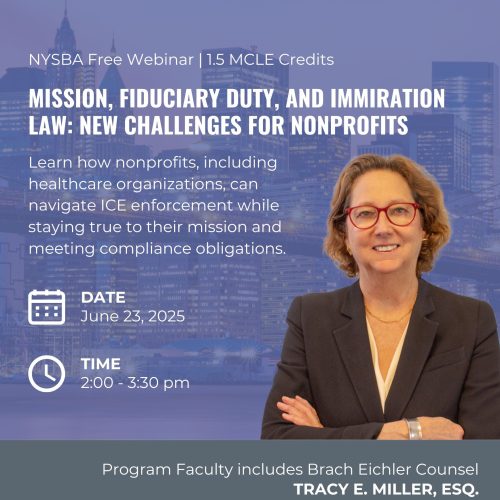11/30/2023
The Department of Justice (DOJ) recently announced a new safe harbor policy for voluntary self-disclosures made in connection with mergers and acquisitions. Under the new policy, companies that timely and voluntarily self-disclose criminal misconduct uncovered during pre-acquisition due diligence or during the integration of a newly acquired business will receive the presumption of a declination of prosecution from the DOJ. To qualify under the new policy, acquiring companies must self-disclose criminal misconduct within six months from the closing date, cooperate with any DOJ investigation, and undertake full remediation of the misconduct within one year from the closing date, which may include restitution and disgorgement payments where applicable.
The new safe harbor policy serves as a means for acquiring companies to mitigate transactional risks and avoid potential legal liabilities, provided they maintain robust due diligence processes to swiftly uncover and report any misconduct to the DOJ. The policy is limited to misconduct within “bona fide, arms-length M&A transactions” and does not cover conduct that is already public, known to the DOJ, or otherwise requiring disclosure. The policy also does not impact civil merger enforcement. The presence of aggravating factors at the acquired company will not affect the acquiring company’s ability to receive a declination under the new policy. The DOJ may, upon request, extend the filing and remediation deadlines depending on the facts, circumstances and complexity of a particular transaction. The DOJ stressed that companies should not delay self-disclosure, particularly when national security implications are involved.
The safe harbor is designed to provide significant incentives for parties to potential transactions to disclose illegal conduct to the DOJ. The new policy will be applied department wide throughout all components of the DOJ and apply to transactions in all types of industries, including healthcare transactions. The new policy is not binding on other enforcement or regulatory authorities, and self-disclosed misconduct may still be pursued by other federal, state, local and foreign bodies. It remains to be seen how the DOJ will implement the policy and what implications the new safe harbor policy will have on existing voluntary self-disclosure rules.
Attorney Advertising: This publication is designed to provide Brach Eichler LLC clients and contacts with information they can use to more effectively manage their businesses. The contents of this publication are for informational purposes only. Neither this publication nor the lawyers who authored it are rendering legal or other professional advice or opinions on specific facts or matters. Brach Eichler LLC assumes no liability in connection with the use of this publication.
*This is intended to provide general information, not legal advice. Please contact the authors if you need specific advice.













